Welcome to our latest feature where we spotlight the unconventional paths of 16 remarkable actors who skyrocketed to fame without ever stepping foot in the best acting schools in the world or local acting workshops near me. In this blog, we’ll delve into the captivating stories of these talented individuals who proved that sometimes, raw talent and sheer determination can outshine even the most formal education. Join us as we explore how each of these actors carved their own unique routes to success, breaking traditional norms and inspiring a generation of performers to follow their instincts rather than a scripted path.
Find casting calls, auditions and entertainment careers on Project Casting Now!
Tom Cruise
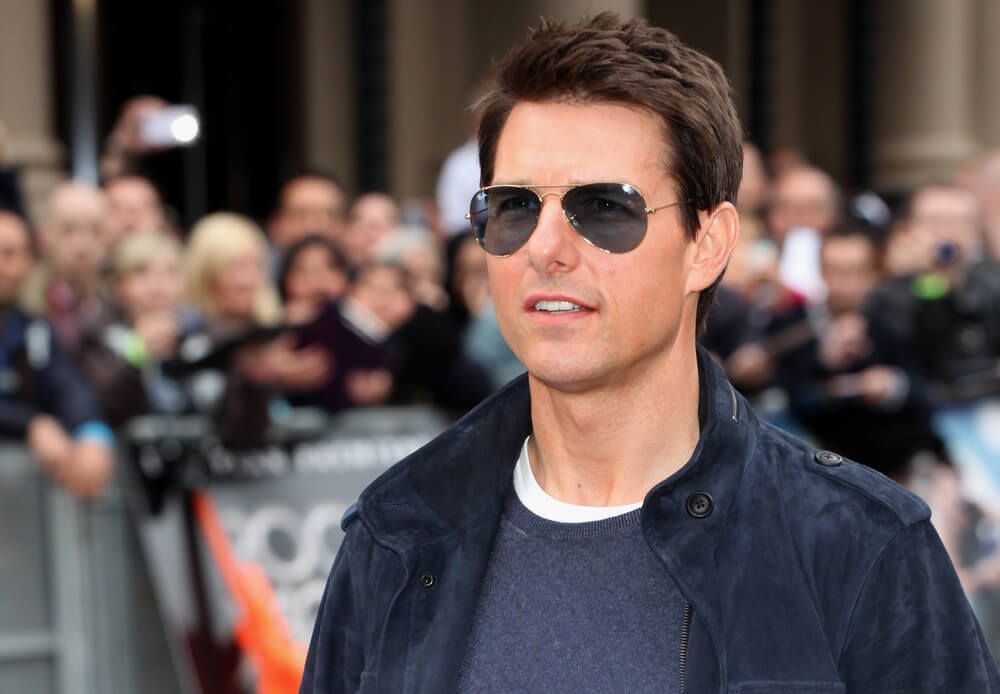
Tom Cruise, a name synonymous with blockbuster hits and breathtaking stunts, has a career that many aspiring actors dream of. However, what sets him apart in the glittering world of Hollywood is his journey as an actor without formal training. In this blog post, we’ll explore how Cruise’s natural talent and relentless drive have propelled him to the pinnacle of cinematic success.
Early Beginnings and Breakthrough
Born on July 3, 1962, in Syracuse, New York, Tom Cruise had a challenging childhood marked by frequent moves and academic struggles due to dyslexia. Despite these challenges, Cruise was drawn to the arts and participated in school plays. His passion led him to New York City at the age of 18, where he pursued a career in acting while taking odd jobs to support himself.
Cruise’s persistence quickly paid off when he landed his first significant role in the 1981 film “Taps.” His performance as a militant cadet caught the attention of audiences and critics alike, setting the stage for a remarkable career that was about to take off.
Rise to Stardom
Unlike many of his peers, Tom Cruise never attended drama school or took formal acting classes. His approach to acting was rooted in a profound belief in learning through experience. He honed his craft on the job, observing his directors and co-stars and continuously pushing himself to improve his performances.
This hands-on learning process was evident in his diverse choice of roles in the 1980s, from a troubled teen in “Risky Business” to an enterprising fighter pilot in “Top Gun.” Each role showcased his ability to connect with audiences, a testament to his innate acting skills and charisma.
Methodology Behind His Craft
Tom Cruise’s method of mastering acting without formal education lies in his meticulous preparation and dedication. For every role, he immerses himself in the character’s world, often performing risky stunts himself, which adds authenticity to his performances. His work ethic is legendary in the industry, often described as one of the hardest-working actors in Hollywood.
Moreover, Cruise is known for his collaborative spirit. He has worked with some of the best directors in the business, such as Steven Spielberg, Stanley Kubrick, and Michael Mann. Through these collaborations, he has absorbed varied directing styles and acting techniques, which have further enriched his abilities.
Continued Success and Legacy
Over the decades, Tom Cruise has not only maintained his star status but has also grown into a powerful producer, ensuring the quality and success of his projects. His portrayal of Ethan Hunt in the “Mission: Impossible” series has become iconic, demonstrating his ongoing commitment to his craft and his ability to draw audiences worldwide.
Tom Cruise’s journey is a powerful reminder that formal education, while valuable, is not the only path to success. His career is a testament to the power of passion, perseverance, and continuous learning. As he continues to push the boundaries of what actors can do on film, Tom Cruise remains a living legend and a source of inspiration for countless aspiring actors around the world.
Jim Carrey
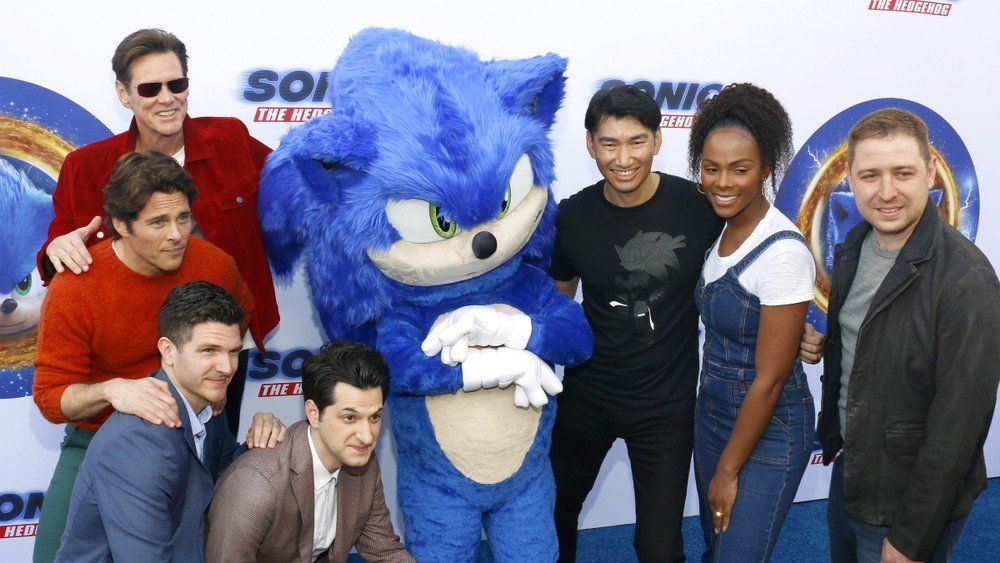
Jim Carrey is a name synonymous with comedy and unparalleled talent in acting, yet his journey to stardom is a story marked not by formal training, but by resilience, natural skill, and an unyielding drive to entertain. His rise from a young school dropout to a celebrated Hollywood star is both inspiring and instructive, especially for those who dream big despite the odds.
Early Struggles and the Spark of Comedy
Born in 1962 in Newmarket, Ontario, Jim Carrey’s early life was not one of luxury or ease. The financial struggles of his family meant that Carrey had to drop out of high school at the age of 15. He took on the role of a janitor to help support his family, working tirelessly after school hours. Despite these challenges, Carrey harbored a deep passion for comedy and entertainment, a spark that was to ignite his future career.
The Turning Point: “In Living Color”
Jim Carrey’s breakthrough came when he was cast in the sketch comedy show “In Living Color” in 1990. This show, known for its bold humor and live audience, became the perfect platform for Carrey to showcase his exceptional comedic talent. His unique ability to contort his face, alongside his dynamic presence and impeccable timing, caught the eye of both the audience and critics alike.
Self-Taught Genius
What is most remarkable about Jim Carrey’s ascent in the entertainment industry is that he never took professional acting classes. His skill was honed purely through experience and a natural inclination towards performance. Carrey’s approach to acting was instinctual. He believed in the power of observation and imitation. He often spoke about studying people and their behaviors, using these observations to perform with authenticity and comedic flair.
A Series of Blockbusters
Following his success on television, Carrey transitioned to film, where he quickly became a household name. His roles in “Ace Ventura: Pet Detective,” “The Mask,” and “Dumb and Dumber” were pivotal in shaping his career and are often cited as some of the most iconic performances in comedic cinema. These films not only showcased his flexibility as an actor but also his ability to carry movies as the leading man.
Beyond Comedy
Jim Carrey’s talents are not confined to comedy alone. Over the years, he has taken on more serious roles in films like “The Truman Show” and “Eternal Sunshine of the Spotless Mind,” proving his versatility and depth as an actor. These performances have garnered critical acclaim, showing that Carrey’s natural acting ability can transcend genres.
Legacy and Inspiration
Jim Carrey’s journey is a testament to the fact that formal education and conventional paths are not the only routes to success. His story is particularly inspiring for young actors and comedians who may not have access to formal training but possess the passion and drive to pursue their dreams. Carrey’s legacy is one of resilience, proving that with talent, dedication, and a sense of humor, anything is possible.
Jim Carrey’s life reminds us that sometimes, the most profound talent comes not from the classroom but from life’s experiences and personal challenges. His success is a beacon for those who dare to dream differently, encouraging them to believe in their inherent abilities and to pursue their passions with relentless determination.
Meg Ryan
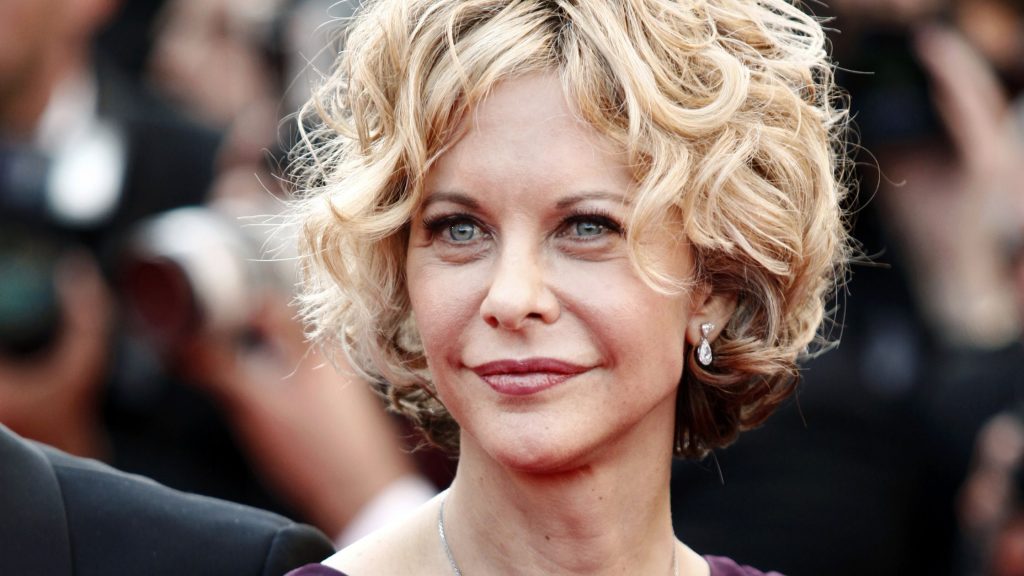
In the world of film and television, the path to success is often as unique as the stars themselves. Meg Ryan, an icon of romantic comedy, is a shining example of an unconventional journey to stardom. Notably, Ryan never took formal acting classes, a fact that makes her accomplishments in the acting world even more impressive. In this blog post, we’ll explore how Meg Ryan transitioned from a journalism student to a beloved figure in Hollywood, all without the traditional acting education that many of her peers pursued.
A Serendipitous Start
Meg Ryan’s journey into the limelight began at New York University, where she was studying journalism. Acting was not initially part of her career plan; it was something she ventured into as a way to earn extra money. Her foray into the world of auditions was driven more by necessity than by a burning passion for the stage or screen. However, this side hustle soon took a turn towards a full-time career trajectory.
The Big Break
Ryan’s decision to leave college was not taken lightly, but it came at a crucial moment. She had been offered a role in a feature film, which presented a fork in the road: continue her academic pursuits or dive headfirst into the unpredictable waters of acting. Choosing the latter, Ryan left NYU, a decision that would set the stage for her rise to fame.
Climbing the Ladder
Without formal training, Ryan relied on her innate talent and the practical experience she gained from each role. Her early career was marked by a variety of roles in film and television, which helped her develop a versatility that would later become her trademark. Her natural charm and ability to connect with the audience shone through, making her a popular choice for directors and producers.
Becoming the Queen of Rom-Coms
It wasn’t long before Meg Ryan found her niche in romantic comedies. Her breakout role in “When Harry Met Sally…” catapulted her into the spotlight. The film was not only a commercial success but also a cultural phenomenon, setting the template for modern romantic comedies. Ryan’s portrayal of Sally Albright was both relatable and enchanting, marking her as a standout actress capable of carrying a film with both grace and humor.
Signature Style and Roles
Ryan’s approach to acting, unencumbered by formal methodologies, allowed her a certain freedom to bring her personal touch to her characters. This authenticity made her performances in films like “Sleepless in Seattle” and “You’ve Got Mail” feel genuine and heartfelt. Her chemistry with co-stars like Tom Hanks was palpable, further cementing her status as a leading lady in rom-coms.
Reflections on Acting Without Formal Training
Meg Ryan’s career is a testament to the fact that there is no single path to success in the arts. Her success without formal acting training challenges the conventional wisdom that formal education is necessary to succeed in the entertainment industry. Ryan’s journey emphasizes the importance of practical experience and natural talent.
The Impact of Her Approach
By not going through formal training, Ryan developed a style that was uniquely hers, unshaped by the standard techniques taught in acting schools. This may have contributed to her fresh and engaging performances, which seemed to resonate strongly with audiences around the world.
Conclusion
Meg Ryan’s ascent in Hollywood, marked by memorable roles and significant acclaim, highlights her remarkable adaptability and talent. Her story is particularly inspiring for aspiring actors who may not have access to traditional training paths. It serves as a reminder that passion, dedication, and the courage to follow one’s instincts can indeed pave the way to success, even in the highly competitive field of acting. Meg Ryan never needed a classroom to refine her craft; the world was her stage, and she certainly mastered it.
Cameron Diaz
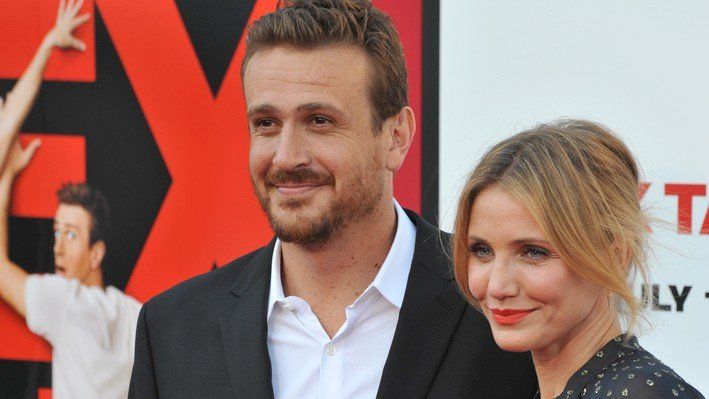
Cameron Diaz’s journey from the world of modeling to becoming a celebrated actress in Hollywood is a story of natural talent and serendipity. Without formal training in acting, Diaz managed to carve a niche for herself in the competitive entertainment industry, impressing both critics and audiences alike. In this blog post, we will explore how Cameron Diaz ascended to stardom without ever taking a traditional acting class, her breakthrough role, and what made her performances stand out.
The Accidental Actress
Born in San Diego, California, Cameron Diaz began her career in the limelight as a model at the tender age of 16. Traveling the world for photo shoots and fashion shows, Diaz had an early exposure to the glamor that would later be a significant part of her acting career. However, acting was not on her radar until a serendipitous audition for the 1994 comedy “The Mask.”
Breakthrough with “The Mask”
Cameron Diaz’s acting debut was nothing short of a fairy tale. At 21, she auditioned for “The Mask,” starring opposite the then-rising star Jim Carrey. With no previous acting experience or training, Diaz landed the role of Tina Carlyle, the film’s female lead. The movie was a massive hit, grossing over $351 million worldwide and catapulting Diaz into the spotlight.
What makes her performance in “The Mask” particularly remarkable is how she held her own against Carrey, known for his dynamic and physically demanding comedic style. Her ability to deliver her lines with natural charm and confidence, without the background most of her peers possessed, was a clear indicator of her innate acting talent.
Diaz’s Approach to Acting
Without formal training, Cameron Diaz approached each role with a fresh perspective. Her method was simple yet effective—she relied heavily on instinct and the guidance of directors and co-stars. This approach allowed her to be moldable and adaptable in various genres, from comedy to drama and thrillers.
Key Roles and Career Highlights
Following her successful debut, Diaz continued to build a diverse portfolio. Her notable films include:
– “There’s Something About Mary” (1998): Diaz’s performance in this gross-out comedy won her critical acclaim and proved her comedic timing.
– “Charlie’s Angels” (2000): As one of the leads in this action-comedy, Diaz showcased her versatility and ability to handle action-packed scenes.
– “Gangs of New York” (2002): Working with Martin Scorsese, Diaz took a dramatic turn, further showing her range as an actress.
Each role brought new challenges and learning opportunities, which Diaz met with her characteristic enthusiasm and hard work.
What We Can Learn From Cameron Diaz’s Career
Cameron Diaz’s career trajectory is a testament to the power of natural talent and the importance of seizing opportunities. Her experience underscores that while formal education and training are valuable, they are not the only paths to success. Diaz’s ability to adapt, learn on the job, and leverage her inherent skills made her a standout performer.
Inspiration for Aspiring Actors
For aspiring actors, Diaz’s career is particularly inspiring because it demonstrates that there are multiple pathways to success in the entertainment industry. Her story encourages individuals to pursue their passions and to take bold risks.
In conclusion, Cameron Diaz’s ascent in Hollywood without formal acting training is a remarkable example of how diverse experiences and innate talent can lead to success. Her career reminds us that sometimes, the conventional path isn’t the only one to achieving one’s dreams.
Johnny Depp
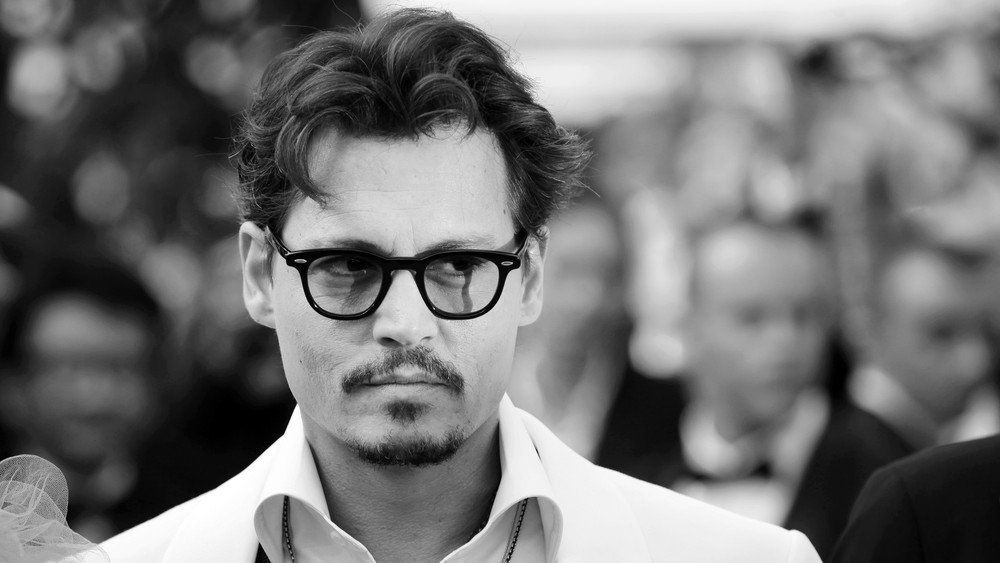
Johnny Depp, a name synonymous with versatile acting and iconic roles, carved a niche in Hollywood without ever stepping into a traditional acting class. His journey from a musician to one of the most celebrated actors in modern cinema is not just inspiring but also a testament to his natural talent and unorthodox approach to acting. This blog post explores how Depp managed to achieve great success in the film industry by relying purely on his instincts and personal experiences.
Early Beginnings
Born in Owensboro, Kentucky, Johnny Depp developed an early interest in music, joining various bands during his teenage years. His initial ambition was to become a rock musician, not an actor. However, life took a different turn when he accompanied a friend to an audition in Los Angeles. It was here that he was introduced to actor Nicolas Cage, who saw potential in Depp and advised him to pursue acting. This chance encounter led to Depp landing his first film role in the horror classic “A Nightmare on Elm Street” (1984).
Breaking Into Hollywood
Despite having no formal acting training, Depp’s raw and compelling performances quickly caught the attention of Hollywood. He gained widespread fame with his role as the undercover cop Tommy Hanson in the popular TV series “21 Jump Street.” His ability to portray deep and nuanced characters endeared him to a growing fan base and caught the eye of directors looking for actors who could bring unique traits to their films.
Method to the Madness
Johnny Depp’s approach to acting is deeply personal and intuitive. He often immerses himself into the characters by altering his appearance, voice, and mannerisms, which allows him to live and breathe the characters he portrays. This method has enabled him to deliver unforgettable performances in films like “Edward Scissorhands” and “Pirates of the Caribbean.”
Influences and Inspirations
Despite not attending formal acting classes, Depp studied cinema and actors intensively on his own. He was influenced by classic actors such as James Cagney and Marlon Brando, absorbing the nuances of their performances. His style also echoes the eccentricity and depth seen in performances by these film legends.
Critical Acclaim
Johnny Depp’s unconventional path to acting did not stop him from earning critical acclaim. His portrayal of complex characters, such as Captain Jack Sparrow, has not only won him the adoration of fans worldwide but also nominations for major awards including the Oscars.
Conclusion
Johnny Depp’s journey is a clear indication that while formal training can be beneficial, it is not the only path to success in the acting world. His career is a blend of innate talent, relentless passion, and the courage to tread an uncharted path. For aspiring actors, Depp’s story is a reminder that creativity and authenticity can sometimes be the most powerful tools in your arsenal.
Johnny Depp’s career trajectory offers valuable insights into how personal drive, a keen eye for learning from the best, and a deep commitment to the craft can compensate for the lack of formal education in the arts. His story encourages all aspiring actors to pursue their dreams with perseverance and to embrace their unique journey in the world of acting.
Joaquin Phoenix:
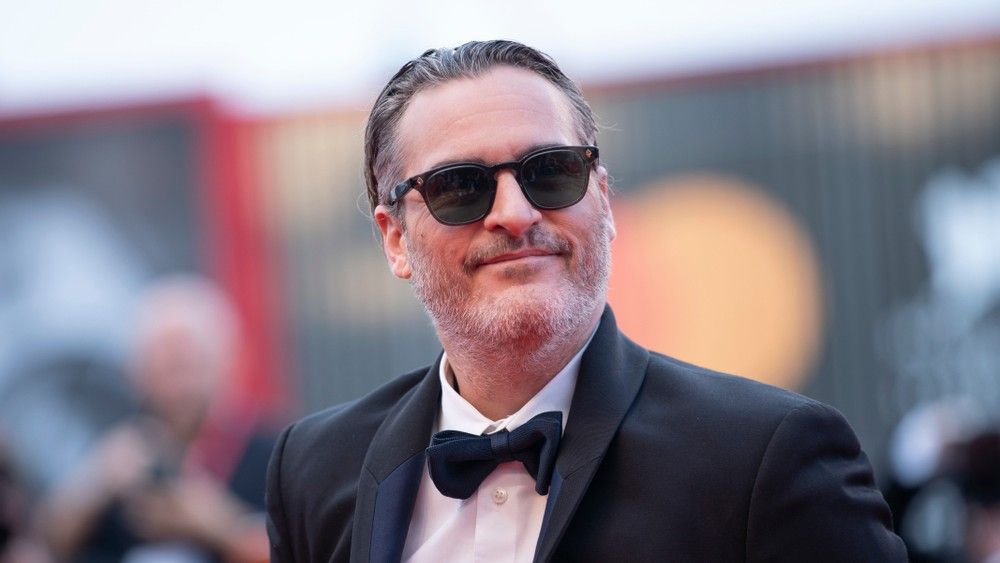
In the glitzy world of Hollywood, where acting schools and method acting courses are often considered essential stepping stones, Joaquin Phoenix stands out as a striking exception. With a career marked by intense, immersive performances, Phoenix’s journey into the acting world was anything but conventional. This blog explores how he carved a niche for himself in the competitive film industry without ever setting foot in a formal acting class.
Early Beginnings: The Streets as a Stage
Born into a family of artists, Joaquin Phoenix’s introduction to performing came at a very young age. The streets served as the first stage for Phoenix and his siblings, where they performed to make a living. This early experience of performing in front of live audiences laid a unique foundation for his acting career. Unlike many actors who hone their craft in the quiet classrooms of drama schools, Phoenix’s formative years were spent in the unpredictable and often harsh reality of street performances, teaching him to adapt quickly and react authentically.
A Natural Talent
Joaquin’s raw talent was evident from his early roles in movies like SpaceCamp and Parenthood, where he displayed a depth of emotion uncommon in child actors. His breakout role as the conflicted Commodus in Gladiator showcased his ability to fully embody complex characters, earning him his first Oscar nomination. This role was a testament to his intuitive approach to acting, relying on emotional memory rather than technical training.
Mastery Through Experience
Over the years, Joaquin Phoenix has taken on roles that have pushed him to explore different dimensions of his craft. Each character he portrayed added layers to his skill set, making his acting style rich with nuances and subtleties. His Oscar-winning performance in Joker is particularly noteworthy. For this role, Phoenix delved deep into the psyche of Arthur Fleck, exploring the character’s descent into madness with haunting realism. His preparation involved losing significant weight and keeping a detailed journal to capture Arthur’s thoughts and emotions, highlighting his methodical approach to character development, sans formal training.
The Impact of Natural Skill
Phoenix’s success without formal training raises questions about the necessity of traditional paths in creative careers. His achievements suggest that passion, experience, and innate talent are equally important, if not more so, than formal education in the arts. Joaquin’s career encourages aspiring actors to focus on authenticity and emotional truth, reminding them that there are many pathways to success in the acting world.
Conclusion
Joaquin Phoenix’s journey in the film industry is a powerful narrative about the triumph of natural talent and personal determination over conventional training. His story is an inspiration for those who dream of a career in acting but may not have access to traditional forms of education. As Phoenix continues to take on challenging roles and deliver compelling performances, he not only enriches the world of cinema but also redefines what it means to be an actor in the modern age.
This exploration into Joaquin Phoenix’s career not only sheds light on his unique approach to acting but also celebrates his remarkable ability to captivate audiences without ever having taken an acting class. His story reaffirms that true talent cannot be confined to the walls of a classroom—it thrives on real-world experiences and personal expression.
Christian Bale

Christian Bale, known for his intense method acting and memorable roles in films like “The Dark Knight,” is a unique figure in Hollywood. Unlike many of his peers, Bale’s journey to acting stardom is distinctive because he never took formal acting classes. His path from a young commercial actor to an internationally acclaimed star showcases a remarkable self-taught trajectory in the world of acting.
From Commercials to the Big Screen
Christian Bale’s entry into acting was not through the traditional channels of drama schools or theater training programs. Instead, his career began at an early age when he started appearing in commercials. This early exposure to the acting world was Bale’s first step towards his future in film.
Leaving school at 16, Bale dove straight into the professional acting scene. This decision to leave formal education behind and pursue acting full-time was a bold move that set the stage for his unique career path.
The Self-Taught Journey
One of the most fascinating aspects of Christian Bale’s career is that he is predominantly self-taught. He did not attend drama school nor did he undergo formal training in acting techniques, which is almost unheard of among actors of his stature. Instead, Bale learned the craft through hands-on experience on film sets and a personal dedication to mastering his roles.
Method Acting and Character Immersion
Bale is perhaps best known for his deep commitment to method acting. This approach involves an intense psychological immersion into the character, often requiring physical transformations and extensive research. For Bale, embodying a character is not merely an act but a complete transformation.
For instance, his role in “The Machinist” required him to lose an astonishing amount of weight, while for “Batman Begins” and its sequels, he gained muscle to portray the physically imposing superhero. These transformations were not guided by a coach or a class but were results of Bale’s personal dedication to the craft.
Iconic Roles and Acclaim
Christian Bale’s approach to acting has led him to a variety of roles that have not only challenged him but also left a significant mark on audiences and critics alike. His portrayal of Batman in Christopher Nolan’s “The Dark Knight” series is particularly notable. Bale’s Batman is not just a superhero but a deeply troubled character, struggling with his inner demons and moral dilemmas. This complexity brought a new depth to the superhero genre.
Bale’s ability to disappear into his roles, regardless of the genre, has earned him numerous awards and nominations, highlighting his skill and dedication to his craft.
Conclusion
Christian Bale’s career is a testament to the power of self-motivation and the pursuit of mastery in one’s field. Without formal training, he has navigated the complexities of acting and found his method, which involves a profound psychological and physical commitment to each role. His journey underscores that passion, dedication, and continuous self-improvement are often as significant as formal education in the arts. Bale’s legacy not only redefines what it means to be an actor but also inspires aspiring actors who might not take the conventional path but still dream of great success.
Russell Crowe

Hollywood is often seen as a realm where only the classically trained can thrive, but Russell Crowe’s journey from a high school drop-out to an Academy Award-winning actor tells a different story. Crowe’s impressive career, highlighted by his iconic role as Maximus in “Gladiator,” showcases how raw talent, determination, and charisma can outshine traditional paths. Here’s a look at how he made it big without ever stepping foot in an acting class.
Early Beginnings and the Leap into Acting
Born in New Zealand and raised in Australia, Russell Crowe left school at the age of 16 to pursue his artistic ambitions. His initial steps were not in front of a camera but on stage, with his music band. Crowe’s entry into acting was almost serendipitous. He began by taking roles in local theatre productions and quickly made the shift to television, starring in Australian TV shows. This phase was crucial, as it was marked by raw performances that honed his ability to captivate audiences with his presence and depth.
The Turning Point: “Gladiator”
It was the year 2000 when Russell Crowe’s career catapulted into the international spotlight with his role as the stoic and fierce Maximus Decimus Meridius in Ridley Scott’s “Gladiator.” This role earned him an Academy Award for Best Actor and established him as a leading man in Hollywood. What made his performance outstanding was not just his physical presence but the emotional depth he brought to the character—a feat more impressive considering his lack of formal training.
Navigating Hollywood Without Formal Training
Crowe’s approach to acting is deeply intuitive. He immerses himself into his characters, using his natural instincts and emotional resonance rather than trained techniques. This method has not only worked for him but has also set him apart from his peers, allowing him to bring a unique authenticity to each role. From the mathematical genius in “A Beautiful Mind” to the investigative journalist in “State of Play,” Crowe has shown an incredible range and adaptability.
Lessons from Crowe’s Journey
Russell Crowe’s career is a testament to the fact that there are multiple pathways to success in the acting world. Here are a few takeaways from his journey:
– Trust Your Instincts: Crowe’s performances are powerful because they are rooted in his personal interpretation of the character, proving that authenticity often trumps technique.
– Continuous Learning: Even without formal education, Crowe’s career is a continuous arc of learning and adaptation, showing the importance of being open to growth irrespective of the stage of your career.
– Resilience is Key: His journey underscores the importance of resilience. Facing initial rejections and typecasting, Crowe’s persistence clearly paid off in the long run.
Conclusion
Russell Crowe’s path in the entertainment industry highlights an unconventional route to stardom. His story encourages aspiring actors to focus on developing their unique strengths and to remember that passion and perseverance can sometimes be as effective as formal training. Crowe’s legacy is not just in the powerful characters he has portrayed but in the inspiration he offers to those who dare to follow a less traditional path to their dreams.
In a world where educational pedigrees often overshadow natural flair, Russell Crowe stands out as a beacon for those who believe in the power of innate talent and hard work. His journey from a teenager with dreams of stardom to a celebrated actor is a narrative that resonates with the fighter in all of us—reminding us that sometimes, the only class you need is a class of your own.
Jennifer Lawrence

Jennifer Lawrence, an acclaimed actress known for her roles in blockbuster hits like “The Hunger Games” and the “X-Men” series, is a shining example of how sheer talent can sometimes eclipse the need for formal training. Her rise to stardom is particularly fascinating because, unlike many of her peers, Lawrence never took traditional acting classes. This post delves into her unique journey from a determined teenager to an Oscar-winning actress, exploring how her innate abilities and relentless drive led her to the pinnacle of Hollywood success.
Early Life and Initial Steps
Born in Louisville, Kentucky, Jennifer Lawrence was far from the glittering lights of Hollywood. From a young age, Lawrence was driven by a compelling desire to perform. She participated in church plays and school musicals, which sparked her interest in acting. However, it wasn’t through classical training methods that she honed her craft; instead, it was her natural flair for embodying characters that set her apart early on.
Convincing the Parents
The first significant challenge Lawrence faced was convincing her parents to take her acting ambitions seriously. At just 14, during a family trip to New York City, she was spotted by a talent scout who arranged auditions for her. The positive feedback she received was enough to make her parents relent, and they agreed to find her an agent. This decision would pave the way for her future in acting.
Breakthrough in Hollywood
Without any formal acting training, Lawrence’s approach to her craft was grounded in instinct and observation. Her breakthrough role came with the 2010 film “Winter’s Bone,” where her portrayal of a tough, resilient teenager in the rural Ozarks earned her an Academy Award nomination for Best Actress. This role showcased her ability to convey deep emotions and a complex character, bringing her critical acclaim and setting her on the path to stardom.
Major Roles and Critical Acclaim
The Hunger Games
Jennifer Lawrence’s casting as Katniss Everdeen in “The Hunger Games” series was a turning point in her career. Her performance was not only pivotal to the success of the franchise but also demonstrated her versatility and ability to lead a major blockbuster. Lawrence’s portrayal of Katniss was both powerful and authentic, resonating with audiences worldwide and solidifying her status as a leading actress in Hollywood.
X-Men Series
Another significant role for Lawrence was as Mystique in the “X-Men” series, where she brought complexity and depth to a character that required a blend of physicality and subtlety. Her performances in these films further proved that her lack of formal training was no barrier to portraying nuanced, dynamic characters.
Talent Over Training
Jennifer Lawrence’s career is a testament to the fact that formal education and training, while beneficial, are not always necessary for success in acting. Her intuitive understanding of character and emotion, combined with her natural charisma, has allowed her to captivate audiences and gain the respect of her peers.
Conclusion
Jennifer Lawrence’s journey from a young girl in Kentucky with big dreams to an internationally recognized superstar underscores the power of innate talent and determination. Her story is inspiring for aspiring actors and creatives, proving that with passion and perseverance, traditional paths can be redefined. As Lawrence continues to evolve and take on new challenges, she remains a living proof that in the world of creativity, talent often trumps training.
Ben Kingsley
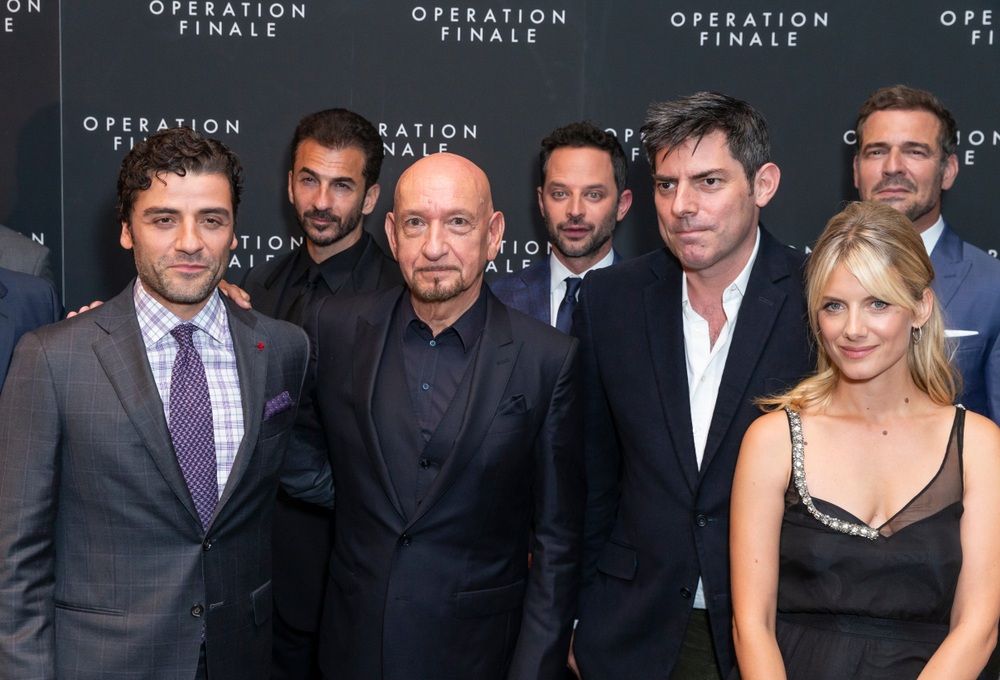
Ben Kingsley, one of cinema’s most versatile and respected actors, has had an illustrious career marked by an array of compelling performances. Remarkably, Kingsley embarked on this impressive journey without any formal acting classes, beginning his acting career at the age of 23. His natural talent culminated in a stellar portrayal of Mahatma Gandhi in the 1982 film “Gandhi,” which won him an Academy Award for Best Actor. This blog post explores how Kingsley’s lack of formal training shaped his acting approach and contributed to his success.
Early Life and Entry into Acting
Born Krishna Pandit Bhanji in Scarborough, Yorkshire, Kingsley’s interest in the performing arts was sparked by his family’s artistic background—his father was a physician of Indian descent who was also a musician and writer, while his mother was a model and actress. Despite this creative environment, Kingsley never pursued formal acting education. Instead, he gained his early acting experiences through participation in amateur dramatics.
Kingsley’s professional acting career began with his acceptance into the Royal Shakespeare Company (RSC), which is notable for being grounded more in an apprenticeship experience rather than formal classroom-style education. At the RSC, Kingsley honed his craft through practical experience, performing in numerous Shakespearean plays, which provided him with a robust foundation in the dramatic arts.
Breakthrough Role as Gandhi
Kingsley’s breakthrough came with his role in “Gandhi.” His preparation for the role was intense and immersive, involving significant research and physical transformation to portray the Indian leader authentically. This role demonstrated Kingsley’s deep commitment to his craft, showcasing his ability to embody a character profoundly and convincingly without the backbone of formal training.
Acting Philosophy and Technique
Kingsley’s approach to acting is deeply intuitive. He often speaks about the importance of fully understanding and embodying the character, focusing on the emotional truth of each role. Kingsley’s method involves a meticulous process of internalizing the character’s psyche, which he achieves through personal research and script analysis rather than traditional acting exercises or methods taught in classes.
Impact and Legacy
Without traditional training, Kingsley has developed a unique acting style that is both subtle and intense. His career is a testament to the fact that formal education is not always necessary to achieve greatness in the performing arts. His performances are characterized by an authenticity that resonates with audiences and critics alike, earning him multiple accolades, including an Oscar, a BAFTA, a Grammy, and two Golden Globe Awards.
Conclusion
Ben Kingsley’s journey in the acting world is inspirational, particularly for those who aspire to enter the arts without formal training. His success underscores the importance of passion, dedication, and continuous learning on the job. Kingsley’s story is a powerful reminder that talent combined with hard work can lead to extraordinary achievements, transcending conventional routes and expectations.
This narrative not only celebrates Kingsley’s accomplishments but also highlights an alternative path to success in the competitive field of acting, providing encouragement and inspiration to aspiring actors everywhere.
Channing Tatum
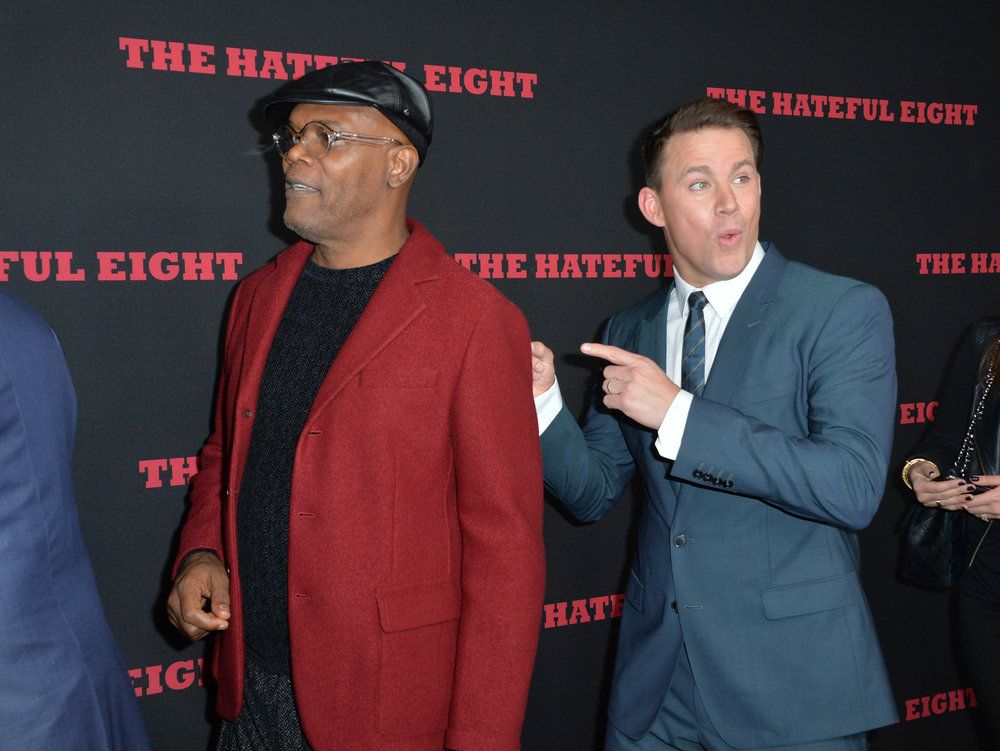
Channing Tatum, a name synonymous with versatility in Hollywood, has made a significant impact on the film industry with his dynamic performances and undeniable charisma. Interestingly, unlike many of his peers, Tatum’s rise to stardom is marked by a path less traveled—one without formal acting training. This blog post explores how Tatum’s natural talent and unconventional journey have shaped his career, making him one of the most relatable and admired figures in cinema.
Early Career and Discovery
Channing Tatum’s entry into the world of entertainment was as unexpected as it was serendipitous. Originally from Alabama, Tatum moved to Florida where his life took a dramatic turn. While attending college, he was discovered by a modeling scout. This chance encounter led to him being catapulted into the modeling world, where he appeared in campaigns for major brands, showcasing his striking looks and natural charisma.
Transition to Acting
Tatum’s modeling work opened doors to commercials and eventually to television. His first notable appearance was in the music video for Ricky Martin’s song “She Bangs.” This exposure provided him with the platform to explore acting—a field he had never formally studied but felt passionately about. Tatum’s leap to film came with his role in the drama “Coach Carter,” but it was his charismatic and physically demanding role in “Step Up” that truly showcased his potential as a lead actor.
Success Without Formal Training
Channing Tatum’s ascent in Hollywood is particularly remarkable given his lack of formal acting training. His approach to acting is intuitive, relying heavily on his ability to empathize with his characters and bring genuine emotion to his performances. Tatum himself has spoken about his reliance on instinct, viewing each role as a learning experience rather than a challenge to overcome.
Key Roles and Natural Skill
Some of Tatum’s most impactful roles demonstrate his natural ability to adapt and connect with diverse characters. From the comedic timing exhibited in “21 Jump Street” to the intense physicality of “Magic Mike” and the dramatic depth in “Foxcatcher,” Tatum has shown a range that many formally trained actors strive to achieve. His performances not only reveal his raw talent but also his commitment to growing with each role, learning on the job rather than in the classroom.
Conclusion
Channing Tatum’s journey in the acting world is a testament to the power of natural talent and the importance of seizing opportunities. His career progression from model to leading Hollywood actor, without the intervention of formal acting classes, highlights that there are multiple pathways to success in the entertainment industry. Tatum continues to evolve as an actor, proving that passion, instinct, and continuous learning can indeed substitute for traditional training methods. His story is an inspiration to aspiring actors and creatives who dream of making it big on their own terms.
Charlize Theron

In the glittering world of Hollywood, where acting classes and drama schools are often considered stepping stones to success, Charlize Theron stands out as a remarkable exception. The South African-born actress, with her innate talent and unconventional entry into acting, has carved out a successful career in the industry, all without the formal training that many of her peers have undergone. This blog post explores Theron’s unique journey from a model and ballet dancer to an award-winning actress, highlighting how her diverse background contributed to her acting prowess.
The Serendipitous Start
Charlize Theron’s entry into acting reads like a script from one of her many films. Originally aspiring to be a dancer, her path took an unexpected turn due to a knee injury, which prematurely ended her ballet career. It was during her struggle to make ends meet that her Hollywood story began. While arguing with a bank teller over a check from her mother that the bank refused to cash, Theron was spotted by an agent. The serendipity of the moment was not lost on her; the agent did not just help her resolve her banking crisis but also offered to be her representative.
Transition to Acting
With no formal training in acting, Theron dove headfirst into the world of Hollywood. Her background in ballet might not have prepared her for memorizing lines or performing on camera, but it equipped her with a profound understanding of movement and expression, valuable tools in an actor’s kit. Her early roles capitalized on her striking presence and ability to convey complex emotions through her physicality.
Breakthrough and Methodology
Theron’s breakthrough came with her role in the critically acclaimed film “Monster” (2003), where she portrayed serial killer Aileen Wuornos. For this role, Theron underwent a dramatic transformation, both physically and mentally, gaining weight, wearing prosthetic teeth, and embodying the character’s tortured psyche. Her performance won her the Academy Award for Best Actress, proving that her lack of formal training was no barrier to delivering a powerful and transformative performance.
The Impact of a Diverse Background
Theron’s success can be attributed to her diverse experiences and intrinsic artistic talents. Her background in dance taught her the importance of discipline and control, qualities that translate seamlessly into acting. Moreover, coming from a challenging environment in South Africa and overcoming personal adversities gave her a depth of experience to draw upon for her roles.
Lessons for Aspiring Actors
Charlize Theron’s journey offers valuable lessons for aspiring actors. It emphasizes the importance of perseverance, the willingness to seize opportunities, and the ability to leverage one’s unique background and experiences. While acting classes can be invaluable, Theron’s career exemplifies how varied paths can also lead to success in the acting world.
Conclusion
Charlize Theron’s acting career is a testament to the fact that there are multiple pathways to success in the arts. Her journey underscores the importance of adaptability, resilience, and the courage to follow one’s passion against the odds. Aspiring actors and creatives can look to her story as a source of inspiration, a reminder that sometimes, the best education comes from life itself.
Theron’s career continues to evolve, and she remains a powerful force in Hollywood, constantly challenging herself with diverse roles that showcase her range and depth. Her legacy is not just in the roles she has embodied but in the unconventional path she blazed in an industry that often prizes a traditional route to stardom.
Henry Cavill
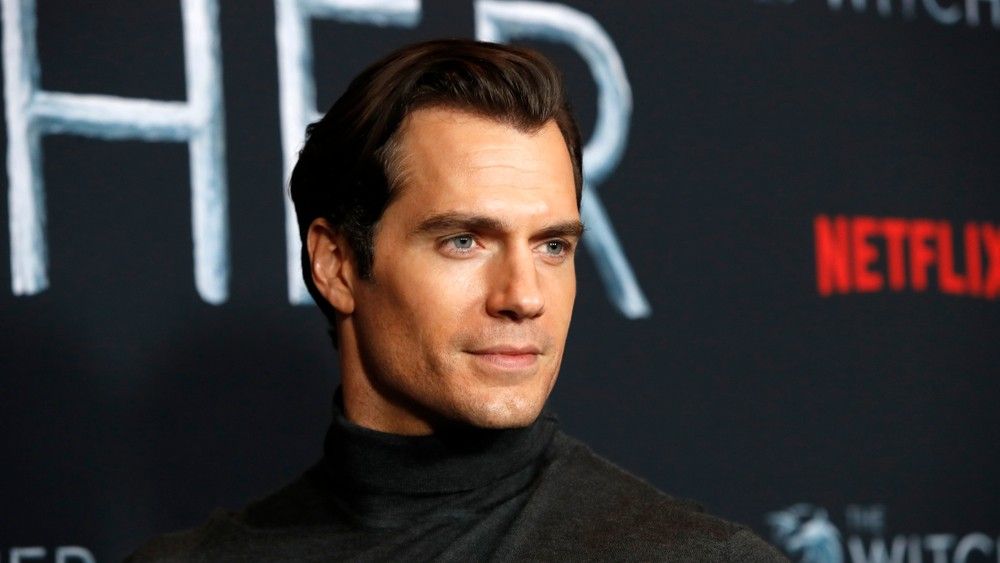
In an industry where formal training and drama schools are often seen as the gateway to success, Henry Cavill’s journey stands out as a testament to natural talent and determination. Known for his charismatic portrayals in high-profile roles such as Superman in the DC Extended Universe and Geralt of Rivia in Netflix’s “The Witcher,” Cavill’s rise to fame is a fascinating story of a self-taught actor who made it big. Here’s a closer look at how he achieved stardom without ever taking traditional acting classes.
A Serendipitous Start
Henry Cavill’s acting career began almost by chance. While attending Stowe School, a boarding school in Buckinghamshire, England, his passion for theater blossomed. However, it was not through rigorous acting courses or professional training that Cavill found his way into the cinematic world. Instead, his entry into acting came when a casting group visited his school. This visit opened the door for his first movie role in “The Count of Monte Cristo” (2002), where he played Albert Mondego. This early exposure to the acting world was Cavill’s real classroom, where he learned by doing rather than studying the theoretical aspects of acting.
Developing Skills on the Job
Without formal training, Cavill honed his acting skills through practical experience. Each role offered him a new set of challenges and learning opportunities. From historical dramas to fantasy epics, Cavill embraced a wide range of genres, which helped him develop a versatile acting style. His ability to adapt to different characters and settings became one of his strongest assets. This experiential learning process was crucial in developing his skills, showcasing his natural ability to embody and bring characters to life.
Breakthrough and Rise to Fame
Cavill’s breakthrough came when he was cast as Superman/Clark Kent in “Man of Steel” (2013). This role catapulted him into international stardom and firmly established him as a leading man in Hollywood. Playing such an iconic character was a significant challenge, especially without the foundational training that many of his peers possessed. Yet, Cavill’s portrayal was both powerful and nuanced, earning him praise from fans and critics alike. His preparation for the role involved rigorous physical training and a deep dive into the character’s rich comic book history, proving that his method of immersive preparation was no less effective than traditional training methods.
Conclusion: A Unique Path to Success
Henry Cavill’s journey is a powerful reminder that there is no one-size-fits-all path to success in acting. His experience underscores the value of passion, perseverance, and learning on the job. For aspiring actors, Cavill’s career offers an inspiring example of how diverse routes can lead to success, even in fields as competitive as film and television. As Cavill continues to expand his career, he not only inspires future generations of actors but also redefines what it means to be trained in the art of acting.
In conclusion, Henry Cavill’s success without formal acting classes highlights that while traditional paths have their benefits, they are not the only way to achieve greatness in the acting world. His story encourages aspiring actors to pursue their dreams with determination and to embrace every opportunity as a potential learning experience.
Matthew McConaughey
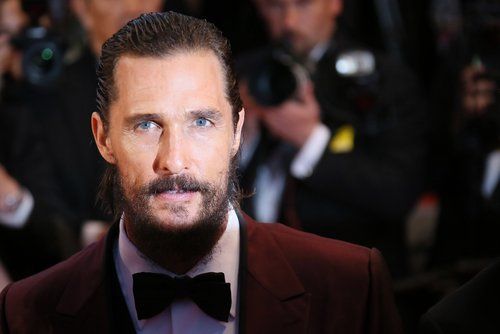
Matthew McConaughey’s path to becoming an Academy Award-winning actor is not just inspiring but somewhat unconventional in the world of cinema. What sets his story apart is a remarkable fact: he never took formal acting classes. This blog post explores McConaughey’s unique journey from his initial steps in the industry through commercials and student films to reaching the pinnacle of acting success.
Early Inspirations and Career Beginnings
McConaughey’s acting career was ignited by an unexpected source: a book. This wasn’t just any book, but one that profoundly shifted his perspective on life and career aspirations. Originally attending college with different professional intentions, it was this pivotal reading experience that inspired him to change course towards the entertainment industry.
Stepping into Acting
Without a formal education in drama, McConaughey dove into the world of acting through commercials and student films. These early gigs were crucial, serving as his makeshift classroom where he learned the nuances of acting on the job. His natural charisma and the ability to bring authenticity to his performances caught the attention of film directors and casting agents.
Breakthrough and Rise to Stardom
McConaughey’s big break came with the film “Dazed and Confused” (1993), where his portrayal of David Wooderson left a lasting impression on audiences and critics alike. His catchphrase from the movie, “Alright, alright, alright,” became famously associated with him and marked the beginning of his rise in Hollywood.
Following this, McConaughey took on a variety of roles that showcased his range as an actor. From romantic comedies to intense dramas, he avoided being typecast and continued to expand his artistic horizons. This period of exploration was critical in shaping his career and preparing him for more significant challenges.
Achieving Critical Acclaim
The turning point in McConaughey’s career came with his role in “Dallas Buyers Club” (2013), for which he received the Academy Award for Best Actor. His portrayal of Ron Woodroof, a real-life figure who fought against the medical establishment and pharmaceutical companies during the AIDS epidemic, was both powerful and transformative. For this role, McConaughey underwent a drastic physical transformation, losing a significant amount of weight to authentically depict the character’s struggles.
Lessons from McConaughey’s Journey
McConaughey’s ascent to the top of Hollywood without formal training is a testament to his dedication, innate talent, and the ability to learn and adapt. Here are a few takeaways from his journey:
- Passion and Perseverance: His career trajectory underscores the importance of passion and perseverance. McConaughey’s commitment to his craft and his willingness to take on diverse roles helped him build a remarkable career.
- Learning on the Job: The actor’s story highlights that practical experience can sometimes be as valuable as formal education. McConaughey honed his skills through actual performance, learning from each role and each set he was on.
- Authenticity Matters: One of McConaughey’s strengths is his authenticity, which resonates deeply with audiences. His ability to remain true to himself while skillfully bringing characters to life is a key factor in his success.
Conclusion
Matthew McConaughey’s story is not just about achieving fame but about an unyielding dedication to a craft he grew passionate about quite serendipitously. His journey is a compelling reminder that there are multiple paths to success, even in fields as competitive and demanding as acting. For aspiring actors and creatives, McConaughey’s career offers a powerful example of how unconventional paths can lead to extraordinary outcomes.
Natalie Portman

Natalie Portman, an icon in the realm of acting, is widely known for her captivating performances in a plethora of films ranging from intense dramas to high-energy science fiction. However, many might find it surprising that unlike many of her contemporaries, Portman never took formal acting classes. This blog post delves into her unique journey from a young model to a celebrated actress, exploring how she mastered the craft of acting through unconventional means.
Early Beginnings: From Modeling to Acting
Natalie Portman’s foray into the limelight began at an early age, initially through modeling. However, it wasn’t long before she discovered that her passion lay not in posing for the camera but in performing in front of it. Her transition from modeling to acting wasn’t driven by formal education in drama; instead, Portman found her training ground in a more dynamic environment.
Theatre Arts Camp: A Foundation for Growth
One pivotal experience in Portman’s early acting career was her time spent at a theatre arts camp. It was here that she immersed herself in the world of acting, absorbing every ounce of practical knowledge she could. Unlike traditional acting schools where techniques and theories are taught systematically, the camp environment provided Portman with a hands-on approach to learning. She participated in plays and performed live, which not only honed her acting skills but also helped her develop the resilience and adaptability needed to excel in theatrical performances.
Breakthrough Roles and Methodical Approach
Portman’s breakout role came at the tender age of 12 in the film “Léon: The Professional.” Her portrayal of Mathilda, a young girl under the wing of a hitman, garnered critical acclaim and set the stage for her illustrious career. Without formal classes, Portman approached each role with a methodical intensity, often immersing herself deeply into the characters she played.
Self-Directed Learning and Research
Portman’s preparation for roles involves extensive research and self-directed learning. For her role in “Black Swan,” which won her an Academy Award, Portman underwent rigorous training in ballet, spending up to 16 hours a day rehearsing both her moves and her character’s psyche. This intense, immersive approach allowed her to deliver a performance that was both authentic and emotionally powerful.
Continual Growth and Versatility
Despite her success, Natalie Portman has continually sought to expand her horizons and challenge herself with diverse roles. Her career is marked by a versatility that stems from her willingness to step out of her comfort zone and engage with new, often complex characters. From historical dramas to modern-day thrillers, Portman’s portfolio showcases a wide range of genres, highlighting her adaptability and unyielding dedication to the craft.
Conclusion: A Unique Path to Mastery
Natalie Portman’s journey in the acting world is a testament to the fact that formal education is but one path to success. Her achievements underscore the importance of practical experience and the intrinsic motivation to learn and grow. Portman’s story inspires aspiring actors and creatives, proving that passion and commitment can lead to mastery, even in the absence of traditional paths.
Natalie Portman’s approach to acting—characterized by a blend of innate talent, relentless preparation, and a continuous quest for growth—serves as a compelling narrative that challenges conventional norms about the making of an actor. Her success without formal training invites us to reconsider the pathways to achieving excellence in any field.
Heath Ledger

Heath Ledger’s journey as an actor is as remarkable as it is inspiring. Unlike many of his peers who spent years honing their craft in prestigious acting schools, Ledger took a path less traveled. He never attended formal acting classes, choosing instead to learn through direct experience in the world of film and theater. This decision did not hinder his career; rather, it set the stage for a legacy defined by unforgettable performances and a natural talent that resonated deeply with audiences worldwide.
The Road Less Traveled: Bypassing Formal Education
Ledger’s acting career began in his native Australia, where he starred in several television shows during his teens. His bold decision to forgo traditional acting classes stemmed from a deep-seated confidence in his natural abilities and a desire to carve out his unique approach to the craft. This choice was unconventional, especially considering the industry’s competitive nature, where formal training is often seen as a prerequisite for success.
Breakthrough in Hollywood
It wasn’t long before Ledger’s charisma and talent caught the eye of Hollywood. His breakthrough role came in 1999 with the teen romantic comedy “10 Things I Hate About You.” His portrayal of the rebellious yet charming Patrick Verona won hearts and showcased his ability to bring depth and authenticity to his characters, a skill that many attributed to seasoned actors with formal training.
Learning on the Job
Ledger’s education in acting came from the hands-on experience he gained on set. Each role presented its own set of challenges and learning opportunities, allowing Ledger to develop a rich, intuitive understanding of acting. This real-world education was complemented by his methodical approach to preparation and his dedication to fully inhabiting his characters.
Iconic Role as The Joker
His role as The Joker in “The Dark Knight” (2008) is often cited as a pinnacle of his career. Ledger’s portrayal of the psychopathic villain was both disturbing and compelling, earning him a posthumous Oscar for Best Supporting Actor. His immersive preparation for the role included isolating himself in a hotel room for weeks, keeping a diary to delve deeply into the psyche of The Joker, and experimenting with the character’s voice and laugh. This role underscored Ledger’s ability to transform completely into his characters, blurring the lines between the actor and the persona.
Legacy and Influence
Heath Ledger’s legacy extends beyond his filmography. His approach to acting—relying on instinct, personal research, and the raw experiences from each set—has inspired a generation of actors to consider alternative paths to their craft. Ledger proved that passion, commitment, and continuous learning are as critical as formal education in acting.
Continuing Impact
Even after his untimely death in 2008, Ledger’s work continues to resonate with new audiences and actors. His career serves as a testament to the power of natural talent and the potential of learning outside traditional frameworks. His performances remain a study in how far dedication, innovation, and a willingness to explore can take an artist.
Conclusion: A Unique Path to Stardom
Heath Ledger’s career is a compelling narrative of success without the conventional pillars of acting education. His journey underscores that while formal training can be beneficial, the heart of acting lies in authentic expression and relentless pursuit of character understanding. Ledger’s legacy teaches us that sometimes, the most profound lessons come not from a classroom, but from life itself and the art of self-discovery through doing.
Conclusion
When looking at the careers of these 16 actors, we see that becoming a success in Hollywood doesn’t always require formal training. Their stories show that you can make it in the acting world through natural talent, hard work, and a genuine love for acting. This gives us a broader view of how different paths can lead to success in such a competitive industry.
The common belief is that to succeed in acting, one must go through rigorous training and learn specific techniques at acting schools. However, these actors prove that natural ability and personal drive can also lead to major achievements in film and TV. Acting, after all, is about expressing human emotions and telling stories, and sometimes the best at this are those who rely on their instincts rather than formal training.
Each actor’s journey highlights the importance of perseverance. The acting industry often favors those with educational credentials or connections, but these actors managed to overcome these barriers. Their stories inspire others, showing that you can achieve great things even without a typical background in acting if you keep trying and believe in yourself.
Their passion for acting is also key to their success. It’s their love for the craft that helped them push through tough times and rejections. This passion is contagious and not only motivates future actors but also captivates audiences. It sends a strong message: follow your dreams, even if they don’t fit the usual expectations.
Moreover, by succeeding outside the traditional routes, these actors bring new perspectives and freshness to their roles. They often use their real-life experiences and natural reactions, which can sometimes offer a more genuine performance than those who have only learned acting in school. This variety improves Hollywood, offering audiences different ways of storytelling and character portrayal.
Their success is also encouraging for young people who want to act but might be scared off by the competitive nature of the industry and their lack of formal training. These actors demonstrate that the industry is open to recognizing and celebrating talent, no matter where it comes from. This encourages a more inclusive environment where different voices can be heard.
In conclusion, the achievements of these actors challenge the usual ideas about how to succeed in acting. They show that there are many ways to reach success in this field. Their stories encourage young actors to go after their passions boldly and to challenge the usual limits of success. In acting, there is space for everyone, and each unique journey is valid and full of potential.
More Project Casting Entertainment News:
How to Become a Model in Los Angeles
Unlocking the Glamorous Path: How to Become a Model in Los Angeles Introduction Los Angeles, often hailed as the world’s entertainment capital, is a thriving hu…
How to Become a Model in Las Vegas
A Step-by-Step Guide on How to Become a Model in Las Vegas Introduction Las Vegas, often dubbed the Entertainment Capital of the World, is not only famous for i…
How to Become an Actor in Hollywood
Unlocking the Path to Stardom: How to Become an Actor in Hollywood Introduction Hollywood, the epicenter of the global entertainment industry, has always been a…



